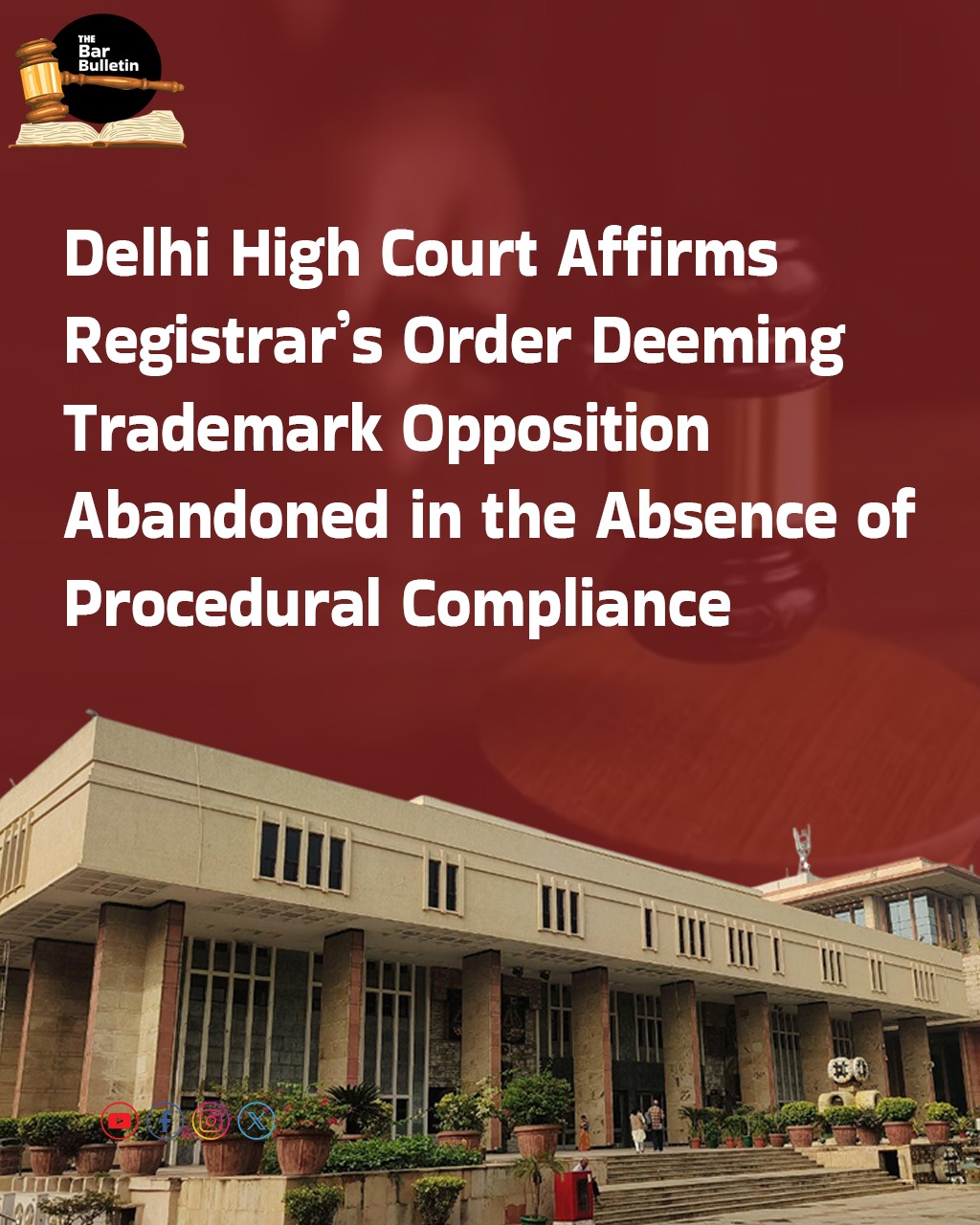The Delhi High Court dismissed the appeal preferred by Tablets (India) Limited, thereby upholding the Registrar of Trademarks’ order which deemed the opposition to the trademark “CEOFSPEY” as abandoned owing to the appellant’s failing to adhere to the strict procedural timelines mandated by the Trade Marks Act, 1999 and Trade Mark Rules, 2017.
The present appeal was directed against the order dated 22 May 2018, passed in opposition proceedings to the application for the mark “CEOFSPEY” in Class 5. The appellant, proprietor of the trademark “CEOF” since December 2011 for pharmaceuticals, alleged that the impugned mark merely copied its mark by adding “SPEY” and had sought to prevent its registration on the ground of deceptive similarity and loss of goodwill.
Respondent No.1’s trademark application for “CEOFSPEY” was advertised in 2016. The appellant filed its opposition, and the Registrar issued notice to Respondent No.1 to file its counter statement within two months. According to the appellant, the counter statement was filed after expiry of the stipulated period and, moreover, was not served on the appellant, thereby depriving it of the ability to submit evidence as required under the Rules. The appellant claimed it first learned of the counter statement upon receiving notice of a hearing, after which it promptly filed written arguments but did not file supporting evidence.
The appellant contended that Section 21(4) of the Act makes submission of evidence discretionary, using the word “may”, and argued that the Registrar was statutorily bound under Rule 50(5) to consider the written arguments before deciding the opposition. The Registrar, however, disposed of the opposition deeming it abandoned due to non-filing of evidence, without addressing the written submissions.
The case put forth by Respondent No.2 was that the counter statement had indeed been served on the appellant, as evidenced by a contemporaneous email and corresponding office records. It was argued that Rules 45(1) and 45(2) imposed a mandatory obligation on the opponent either to file evidence or to formally intimate that they did not wish to do so and would rely on the opposition facts. Failure to perform either, it was submitted, triggered automatic abandonment as per the statutory scheme.
The Bench comprising Justice Tejas Karia, after analysing the facts, found no merit in the appellant’s objections regarding late filing or non-service of the counter statement. The judge noted that the objection was not raised as a preliminary matter in written arguments and, based on the material (including email records), the court was satisfied as to service on the appellant.
The judge held that while Section 21(4) makes it optional to file evidence in opposition, Rule 45(1) requires the opponent, if choosing not to submit evidence, to communicate this intent in writing to the Registrar and to the applicant within two months, explicitly stating reliance only on the pleadings. Because the appellant took neither course, the Registrar was statutorily correct in treating the opposition as abandoned under Rule 45(2). It was not open to the opponent to attempt to cure procedural default simply by filing written arguments at a belated stage.
The High Court also clarified that the requirement in Rule 50(5) for the Registrar to consider written arguments only arises “after closure of evidence”; in the appellant’s case, there was no such closure, and hence no occasion for the Registrar to weigh the written arguments, as the opposition was already deemed abandoned by mandate of law. The hearing that took place did not meet the requirements or context contemplated by Rule 50.
Appearances:
For Appellant: Mr. Mayank Bughani, Advocate
For Respondent No.2: Ms. Radhika Bishwajit Dubey, CGSC with Ms. Gurleen Kaur Waraich, Mr. Kritarth Upadhyay & Mr. Vivek Sharma, Advocates
Respondent No.1 was proceeded against ex parte.



